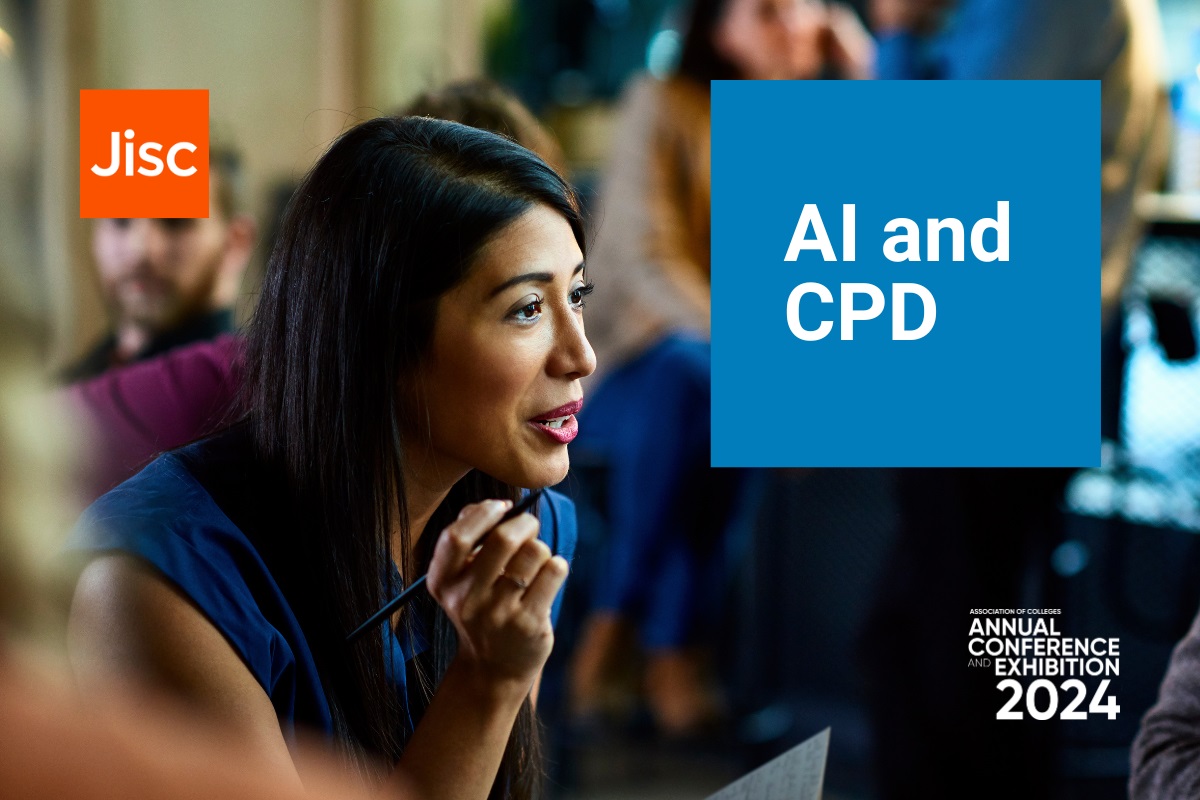Tom Speaks To David Hughes about College Consensus, Effective Lobbying and T Levels for #SkillsWorld

This week for Skills World, Tom Bewick is joined by David Hughes, Chief Executive, Association of Colleges (AoC) to discuss College Consensus, Effective Lobbying and T Levels.
As a representative of quite diverse colleges across the country, how difficult do you find it to come to a consensus, a collective view about colleges?
Every College is interested in one thing, and that’s helping people realise their talents and ambitions, and that’s what we try to focus on.
We’re there, Colleges are there, whatever their particular specialism is, they’re there to help people get on in life and get on in work, so that’s what binds us. When you focus people on that teaching and learning and student experience, actually you get a lot of consensus.
So, it is relatively easy, but we are trying to be a leadership organisation, so we do sometimes push, cajole, challenge our members rather than just following them.
I don’t see my job as ‘followship’, I am a leader. They pay my wages, because membership fees pay for the organisation.So, sometimes I get them a little bit upset, but I always think, as long as they’re not all upset at the same time, we’ll be fine. So far, a couple of years in we’re alright.
{https://soundcloud.com/fenews/skills-world-david-hughes/s-BsQxL}
Why are Vice Chancellors more effective at lobbying for more funding and resources for universities than your members are?
I think we are a long way behind, and I think we have got a lot of catching up to do. I joined the AoC a couple years ago and said we need to do better on this. We need to work together, we need a united voice.
In my first few months people started prodding me and asking me what I had done to help them. Where we have got to now, a few years in, is people are starting to say, what more can WE do to have our collective voice? They’re much more understanding of why a collective voice is important, and how we need to agree the simple few issues we’re going to campaign on. So, we’ve made great strides.
Most of Whitehall went to a school. Most of the opinion makers and opinion formers and people in power went to a school, most of them went to a university, very few of them went to a college.
So, their understanding of what college is, is very low. We have to actively go out and help give them interactions with colleges that are good.
We’re doing lots of inviting them in to visit. Every single person who has been to a college for the first time comes out and says I never realised how amazing they are.
Never realised how eloquent the students are, never realised how passionate the staff are, how great the facilities are.
We need more of that, part of it is to get colleges to open up more to their communities.
Do you think that T Levels really can be the success that ministers are talking about, in terms of it being the final answer to this age-old problem of lack of parity of esteem and intellectual snobbery?
I think the concept of T Levels is spot on, I think the Sainsbury review had some really good stuff in it.
I’m really worried that the implementation is too narrow. I think the focus is on developing a new qualification and a new curriculum, not thinking about the system.
The system needs to include:
- What other options are there at Level 3?
- How people might start to choose what might be best for them?
A Levels are still the gold standard. What does that make T Levels? Silver, Bronze, Tin… paper?
You then think about the system. What happens up until age 16?
Lots of young people get zero involvement in technical education before 16. Why would they suddenly, at 16, choose a technical qualification when they could do A Levels?
Then you have the people who haven’t achieved by 16, the sort of transition support that they need to get into technical.
Then the progression afterwards that makes it attractive, particularly to middle-class England, who want and aspire for their children to go beyond Level 3 and to go into higher levels.
We have to look at it is a system, at the moment sadly, I think the department is finding that quite challenging.
What is the answer to the challenge of overcoming this cultural pervasiveness, of A Levels being the only clear route to “success”?
I am a big fan of getting young people, from as early an age as possible, to have more interaction with technical education.
That will start to get their motivation and encourage them to think it. By the time your hormones start at 12,13,14 it’s probably too late.
I think you have to introduce it earlier. I think you have to get young people understanding, you have to get parents thinking, that technical options can take their children all the way through to the highest-paid, best, and most prestigious jobs. At the moment it is quite difficult to sell that.
I think things have changed though, Universities now are struggling in terms of their prestige, because there is lots of graduate under employment.
The Government is starting to say maybe we don’t need so many people doing 3-year residential bachelor’s degrees, and we need more people doing Technical Ed.
If it can be progressive, i.e. doing a level 4 isn’t the end. Actually, it could be doing a level 4, and then a level 5, and it could be 5 years in between, or 10 years in between, and a degree apprenticeship, if it’s a progression route.
That is why I say the system matters so much. I don’t think the government, at the moment, has really understood that fully.
What they are in danger of doing is plonking into a bit of a mess, a beautifully created, new qualification, that nobody will do, because nobody understands where it fits.
David Hughes, Chief Executive, Association of Colleges (AoC), talking to Tom Bewick for this week’s episode of Skills World.
Despite best endeavours to ensure accuracy, text based on transcription may contain errors which could alter the intended meaning of any portion of the reported content. Speakers have not had the opportunity for any corrections.








Responses